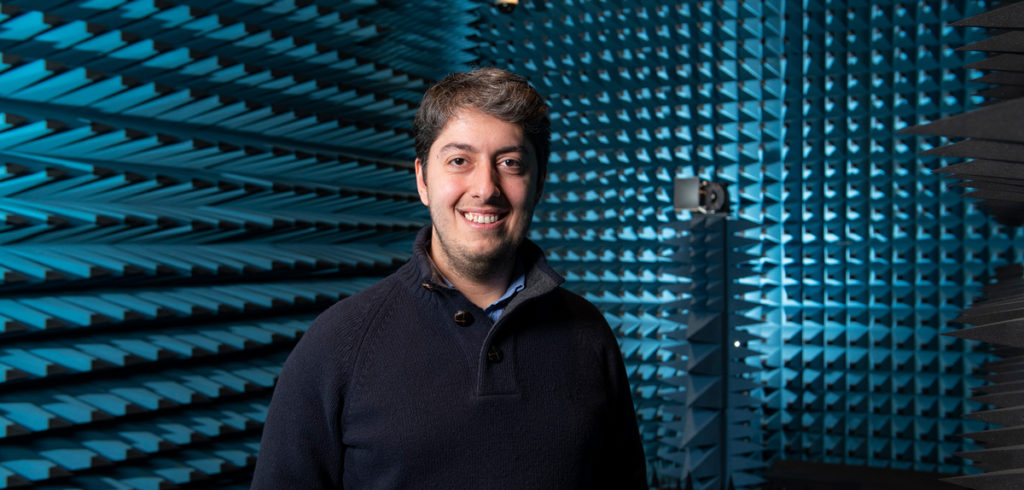Queen’s University Belfast researchers have been awarded £1m (US$1.3m) to develop groundbreaking technology that could slash the time needed for scanning at airports.
Dr Okan Yurduseven from the Institute of Electronics, Communications and Information Technology at Queen’s has been awarded a Leverhulme Research Leadership Award to develop technology which he hopes will cut the time it takes to collect and process data through security scanners from 10 seconds to less than a 10th of a second.
In 2015, an internal investigation of the Transportation Security Administration in the USA revealed that undercover investigators were able to smuggle mock explosives or banned weapons through checkpoints in 95% of trials. This made Yurduseven determined to develop a more effective solution that would also cut waiting times.
“When we arrive at the airport, everyone has to go through security clearance and body scanners which can take some time. When we walk through the scanner, it can take around 10 seconds to collect and process the data and reconstruct an image. It takes even longer when the data is sent to a controller, who then manually checks it for illegal items. It can also add extra time when there are false alarms,” Yurduseven explained. “While this may not sound like very long, we have to take into account the huge volume of people filtering through airport security every day and this causes huge queues.”
According to Yurduseven, questions have also been asked regarding the existing system’s effectiveness in terms of spotting illegal items.
“By integrating machine learning into the design process, we will substantially reduce the false alarm rates in detecting threat objects. The outcome of this project will be of vital importance to ensure the safety of the public right across the globe,” he said.
“In order to do this we will use state-of-the-art millimeter-wave radar systems. We expect that the end result will be a much more effective system, leading to safer outcomes and reduced waiting times – and hopefully shorter queues at airports and other venues that use these scanners.”
Yurduseven is setting up a team to work on the five-year project. He is searching for four PhD students and four postdoctoral research associates who will work on groundbreaking radar technology, image processing algorithms and deep learning schemes.
Interested in airport security? Join us at Passenger Terminal CONFERENCE in Paris, where one of the conference streams will discuss Aviation Security, Border Control & Facilitation. The full conference program can be found here.

